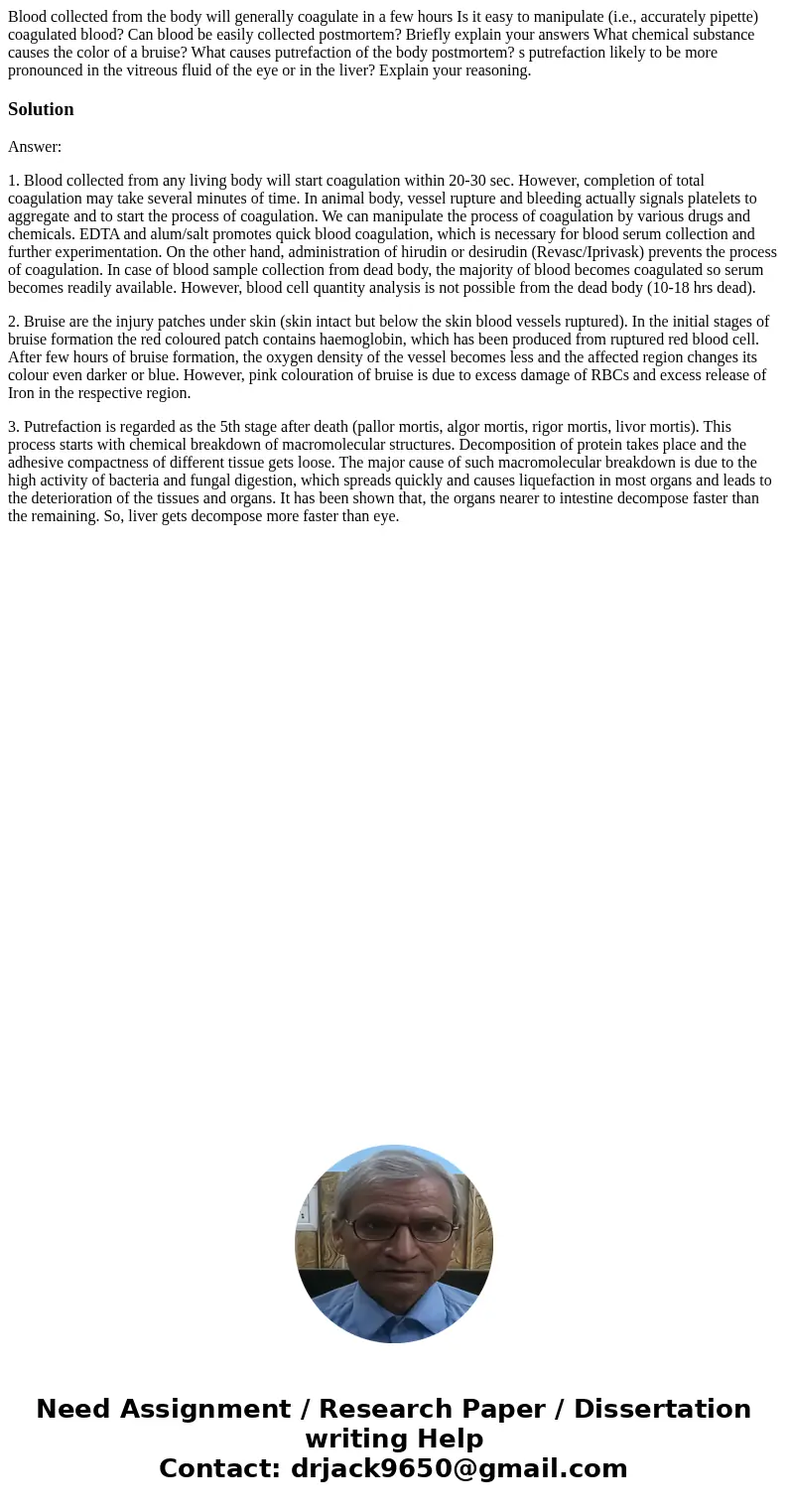Blood collected from the body will generally coagulate in a
Solution
Answer:
1. Blood collected from any living body will start coagulation within 20-30 sec. However, completion of total coagulation may take several minutes of time. In animal body, vessel rupture and bleeding actually signals platelets to aggregate and to start the process of coagulation. We can manipulate the process of coagulation by various drugs and chemicals. EDTA and alum/salt promotes quick blood coagulation, which is necessary for blood serum collection and further experimentation. On the other hand, administration of hirudin or desirudin (Revasc/Iprivask) prevents the process of coagulation. In case of blood sample collection from dead body, the majority of blood becomes coagulated so serum becomes readily available. However, blood cell quantity analysis is not possible from the dead body (10-18 hrs dead).
2. Bruise are the injury patches under skin (skin intact but below the skin blood vessels ruptured). In the initial stages of bruise formation the red coloured patch contains haemoglobin, which has been produced from ruptured red blood cell. After few hours of bruise formation, the oxygen density of the vessel becomes less and the affected region changes its colour even darker or blue. However, pink colouration of bruise is due to excess damage of RBCs and excess release of Iron in the respective region.
3. Putrefaction is regarded as the 5th stage after death (pallor mortis, algor mortis, rigor mortis, livor mortis). This process starts with chemical breakdown of macromolecular structures. Decomposition of protein takes place and the adhesive compactness of different tissue gets loose. The major cause of such macromolecular breakdown is due to the high activity of bacteria and fungal digestion, which spreads quickly and causes liquefaction in most organs and leads to the deterioration of the tissues and organs. It has been shown that, the organs nearer to intestine decompose faster than the remaining. So, liver gets decompose more faster than eye.

 Homework Sourse
Homework Sourse